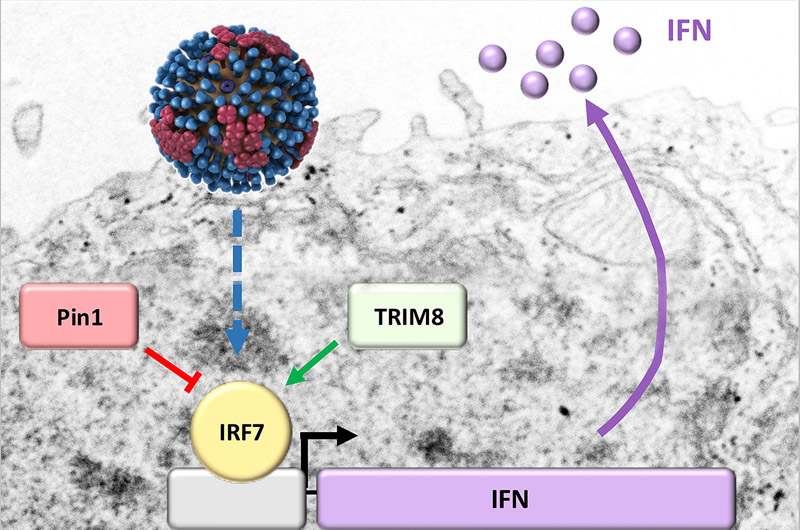Interferon response: With great power comes great responsibility
In a work published in Science Advances (IF=12.8), Sébastien Nisole and collaborators unveil a new mechanism for the regulation of the interferon response in plasmacytoid dendritic cells (pDCs).
The main function of pDCs is to detect pathogens in the organism and to produce large amounts of interferon (IFN), a powerful antiviral cytokine. Given the deleterious effects that a prolonged or exacerbated IFN response can have, the activation of pDC must be tightly regulated. In this work, researchers have identified an important mechanism of control of IFN response in pDCs, implicating two proteins with antagonist activity, TRIM8, which allows the production of IFN, and Pin1, which switches it off. These results have been confirmed in vivo, using a zebrafish model of Chikungunya virus infection. This work may lead to the development of new therapeutic strategies against pathologies related to an overproduction of interferon, such as chronic viral diseases and autoimmune diseases.

